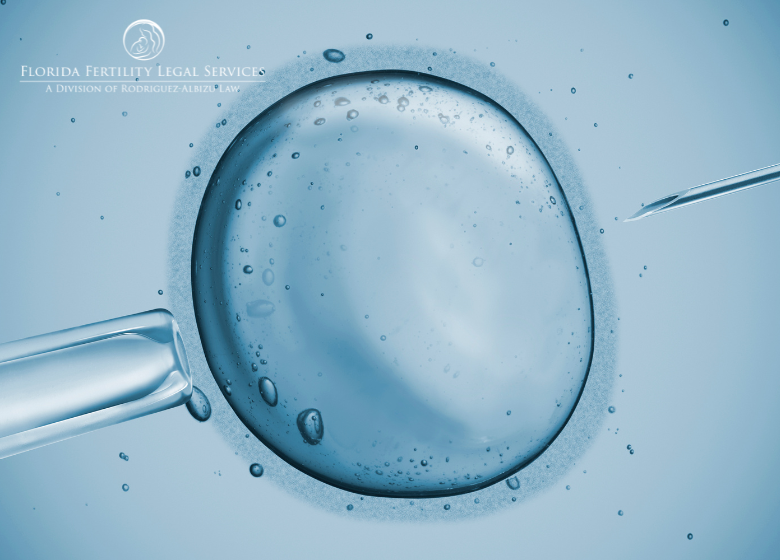Family planning is taking many exciting new shapes, and here at Florida Fertility Legal Services, we’re proud to help families navigate the legal landscape of assisted reproduction. One increasingly popular option is building a family through egg or sperm donation.
If you’re considering egg or sperm donation in Florida, you might have questions about the legalities involved. This blog post is here to shed light on that process. We’ll explore who can donate, the different types of donation arrangements, and how Florida law protects both intended parents and donors. By the end, you’ll have a clearer understanding of your rights and responsibilities, and the steps you need to take to move forward with confidence.
Who Can Donate Eggs or Sperm in Florida?
Thinking about egg or sperm donation in Florida? There are some criteria to ensure a safe and legal process for everyone involved. Here’s a breakdown of the key requirements:
- Age: In Florida, egg donors typically fall between the ages of 21 and 31. This age range reflects the best chance of healthy, viable eggs. Sperm donor age requirements often have a wider range, but clinics may still have their own preferences.
- Health: Both egg and sperm donors must be in good overall physical and mental health. This involves a thorough screening process conducted by the fertility clinic. Expect evaluations covering physical exams, infectious disease testing, and genetic history checks.
- Legal Requirements: While Florida doesn’t have a state residency requirement for donors, clinics may have their own policies. Background checks are also common to ensure the safety of intended parents.
Remember: These are general guidelines. Specific requirements can vary depending on the clinic you choose. It’s always best to check directly with them for the latest information.
Egg and Sperm Donation: The Legal Process
There are two main types of egg and sperm donation arrangements in Florida, each with its own legal considerations:
- Anonymous Donation:
-
- Confidentiality: The identities of donors are kept confidential from intended parents and any resulting children.
- Compensation: Florida law allows “reasonable compensation” directly related to the donation process. This could include reimbursement for medical expenses and time commitment.
- Agreements: A written agreement between the donor and the intended parents is crucial. It outlines details like compensation, anonymity, and relinquishing parental rights. Florida Fertility Legal Services has the experience needed to be sure your donation agreement complies with Florida law and contains safeguards to protect the confidentiality and identity of the parties.
- Known Donation:
-
- Identity Disclosure: The identity of the donor may be known to the intended parents and potentially the child conceived through donation (depending on the agreement).
- Legal Counsel: Consulting with Florida Fertility Legal Services is highly recommended for known donations, especially if there’s ongoing contact with the donor.
- Agreements: Similar to anonymous donation, a written agreement is essential to establish expectations and legal rights for all parties involved.
Key Points for Both Types:
- Parental Rights: Florida Statute 742.14 ensures intended parents have parental rights, while donors relinquish all parental rights and obligations to the donated eggs, sperm, and any resulting children.
- Importance of Agreements: A well-crafted agreement protects everyone involved. It clarifies expectations regarding compensation, anonymity, contact with the donor (if applicable), and future medical information disclosure for the child.
Remember: This is a simplified overview. Consulting with the experienced attorneys at Florida Fertility Legal Services is crucial for navigating the legalities of egg and sperm donation. We can help you understand the specific implications of your chosen arrangement and ensure your rights are protected.
Additional Considerations for Intended Parents
While the legalities are crucial, there are other important factors for intended parents to consider when pursuing egg or sperm donation:
- Legal Counsel is Key: Throughout the egg or sperm donation process, consulting with an experienced attorney in assisted reproduction is vital. We can guide you through the legalities, explain your rights and obligations as intended parents, and ensure your chosen arrangement (anonymous vs known donation) is legally sound.
- Choosing a Reputable Fertility Clinic: Working with a reputable fertility clinic helps ensure the health, safety, and ethical treatment of donors. Look for accreditation from organizations like the American Society for Reproductive Medicine (ASRM). These organizations set strict standards for screening donors, ensuring you receive accurate information about medical history and other relevant details.
- Disclosing Donor Information to Children: Depending on the type of donation (anonymous or known), you may need to consider how and when to disclose donor information to your child. An attorney can advise you on navigating these conversations, especially if you choose known donation where contact with the donor is ongoing. Even for anonymous donations, some experts recommend talking to your child about their genetic makeup at an appropriate age.
Building a family through egg or sperm donation can be a wonderful experience. By understanding the legalities involved in Florida, you can embark on this journey with confidence.
This blog post has provided a foundation, but remember, every situation is unique. Here are some key takeaways:
- Know the Requirements: Whether you’re considering becoming a donor or an intended parent, be aware of the age, health, and legal requirements in Florida.
- The Importance of Agreements: Written agreements are essential for both anonymous and known donations. They protect your rights and ensure everyone involved is on the same page.
- Seek Legal Guidance: Consulting with an attorney experienced in assisted reproduction is crucial. We can navigate the legalities specific to your situation and ensure your path to parenthood is secure.
At Florida Fertility Legal Services, we’re here to help you understand your options and navigate the legalities of egg and sperm donation in Florida. Contact us today for a consultation and let’s discuss how we can help you build your dream family.

